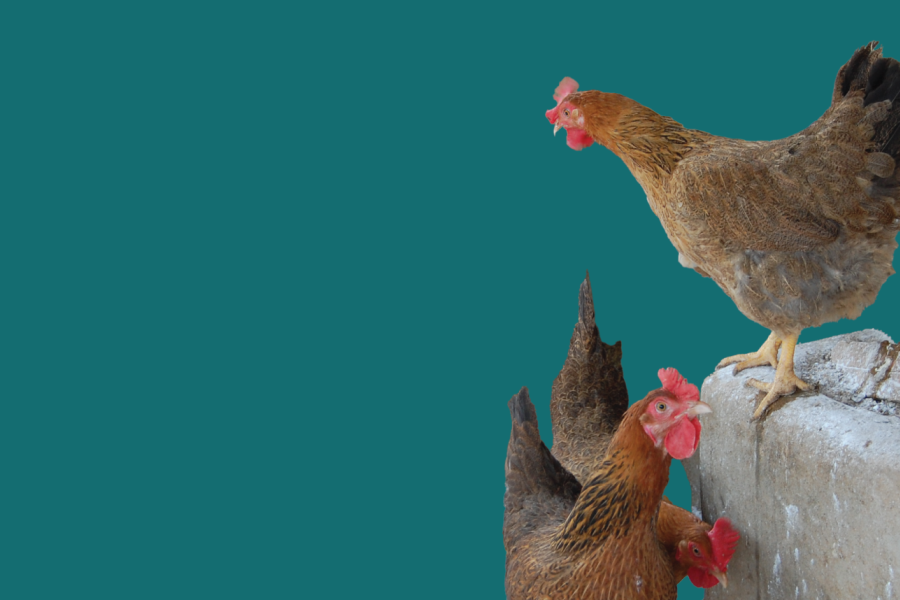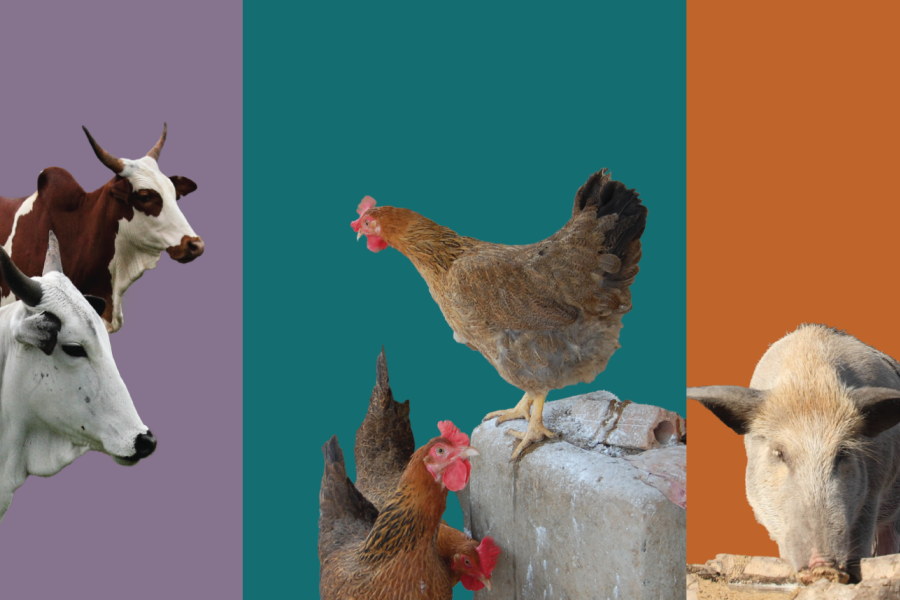Bridging the gap: climate finance and sustainable livestock development

Photo: S. Mann (ILRI)
In the face of global climate change and food security challenges, the livestock sector in low- and middle-income countries (LMICs) stands at a critical juncture. While it plays a vital role in feeding and supporting over 1.3 billion people, it's also responsible for up to 20% of human-induced greenhouse gas (GHG) emissions. Despite this significant impact, the sector receives disproportionately low climate finance support. A group of experts from the LD4D network is now addressing this issue and offering solutions.
The challenge: data and evidence gaps
The Livestock Data for Decisions (LD4D) Climate Finance Solutions Group, a coalition of 20 international livestock and finance experts, has identified a key barrier: the lack of robust information and evidence. This gap is preventing LMICs from accessing their fair share of climate finance, which is essential for sustainable livestock development.
A strategic intervention
With the 79th Session of the UN General Assembly (UNGA 79) and the 2024 United Nations Climate Change Conference (COP29) approaching, the LD4D group has released three evidence briefs. These documents aim to equip decision-makers with the knowledge needed to unlock climate finance for the livestock sector.
Key insights from the Evidence Briefs
Investment Case for Finance: The first brief highlights how increased climate finance could enable LMIC livestock communities to adopt proven climate-smart solutions. For instance, sustainable farming practices like rotational grazing can reduce GHG emissions by up to 30% while boosting productivity and incomes.
National Policy Support: The second brief outlines strategies for countries to better access and deploy climate finance. This includes incorporating livestock in national climate plans and standardising livestock data. Kenya's success story, where $144 million was mobilised through its Dairy Nationally Appropriate Mitigation Actions (NAMA), serves as an inspiring example.
Measuring Livestock Emissions: The third brief summarises globally-recognised methods for measuring emissions in livestock systems. This is essential for planning, implementing, and assessing projects seeking climate finance.
The pressing need for action
As global population growth drives up food demand - projected to increase by 30% globally and up to 100% in some LMICs by 2050 - the livestock sector must become more efficient. It needs to produce more without increasing emissions. Climate finance is key to achieving this balance.
A call to decision-makers
Carlos Gonzalez Fischer, a member of the LD4D Solutions Group and Research Associate at Cornell University, emphasises the importance of supportive policies and increased climate finance in unlocking the sector's full potential to reduce hunger sustainably.
Laura Cramer, a policy engagement specialist at the International Livestock Research Institute (ILRI), adds that these evidence briefs aim to close a significant knowledge gap in climate action for livestock development. By providing clear outlines of opportunities, risks, tools, and strategies, the briefs equip countries with the evidence needed to access sustainable livestock financing.
Looking ahead
As UNGA 79 and COP29 approach, these evidence briefs offer a valuable resource. They highlight the potential for increased investments from both private and public sectors to provide livestock development in LMICs with the resources needed to meet significant food security, economic, and environmental goals.
By bridging the gap between climate finance and sustainable livestock development, we can work towards a future where food security, nutrition, and livelihoods in livestock-dependent communities are improved, all while reducing the sector's environmental impact.
LD4D Solutions Groups: a new collaborative approach
The Livestock Data for Decisions (LD4D) Climate Finance Solutions Group is an initiative designed to bridge the gap between data producers and decision-makers. LD4D Solutions Groups bring together experts and decision-makers from the LD4D network to tackle specific data challenges in the livestock sector.
These groups aim to produce tailored data tools or knowledge products that support informed decision-making within a 6-12 month timeframe. The Climate Finance Solutions Group, piloted in 2024, is the first of these collaborative efforts. It exemplifies LD4D's commitment to fostering dialogue and leveraging diverse expertise to address the disconnect between available livestock data and evidence, and the needs of decision-makers.




